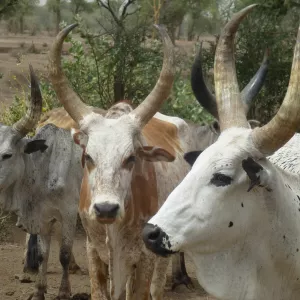Newly launched investment handbook outlines opportunities in Ethiopia’s livestock and fishery sectors
Ethiopia’s livestock and fisheries sub-sectors represent some of the most promising, yet underutilized, engines of economic growth in the country. With the largest livestock population in Africa boasting over 70 million cattle, 52.5 million goats, 42.9 million sheep and 8.1 million camels Ethiopia has a vast biological resource base that can significantly boost food security, nutrition, employment and export earnings.

Newly launched investment handbook outlines opportunities in Ethiopia’s livestock and fishery sectors
Ethiopia’s livestock and fisheries sub-sectors represent some of the most promising, yet underutilized, engines of economic growth in the country.
With the largest livestock population in Africa boasting over 70 million cattle, 52.5 million goats, 42.9 million sheep and 8.1 million camels Ethiopia has a vast biological resource base that can significantly boost food security, nutrition, employment and export earnings.
The government’s 10-year agricultural transformation plan underscores this potential with ambitious targets: 28.4 billion litres of milk, 1.7 million tons of meat, 5.5 billion eggs and 260,000 tons of fish, among others.
These milestones are not just aspirational; they are achievable with the right investments in production, processing and market infrastructure.
Private sector engagement is at the heart of this transformation, backed by Ethiopia’s strategic location, access to international markets, and a growing domestic demand driven by urbanization and income growth.
However, despite the immense promise, several structural and operational challenges hinder full-scale investment.
Infrastructure limitations, such as inadequate cold chains and processing facilities, continue to bottleneck supply chains.
Smallholder dominance, weak policy implementation, limited livestock technology multiplication centres and quality control issues have all constrained productivity.
Additionally, the private sector’s limited focus on primary production, combined with the lack of entrepreneurship skills among producers, have slowed down commercial transformation.
Photo: Cattle in Afar Ethiopia (ILRI/ Fiona Flintan)

